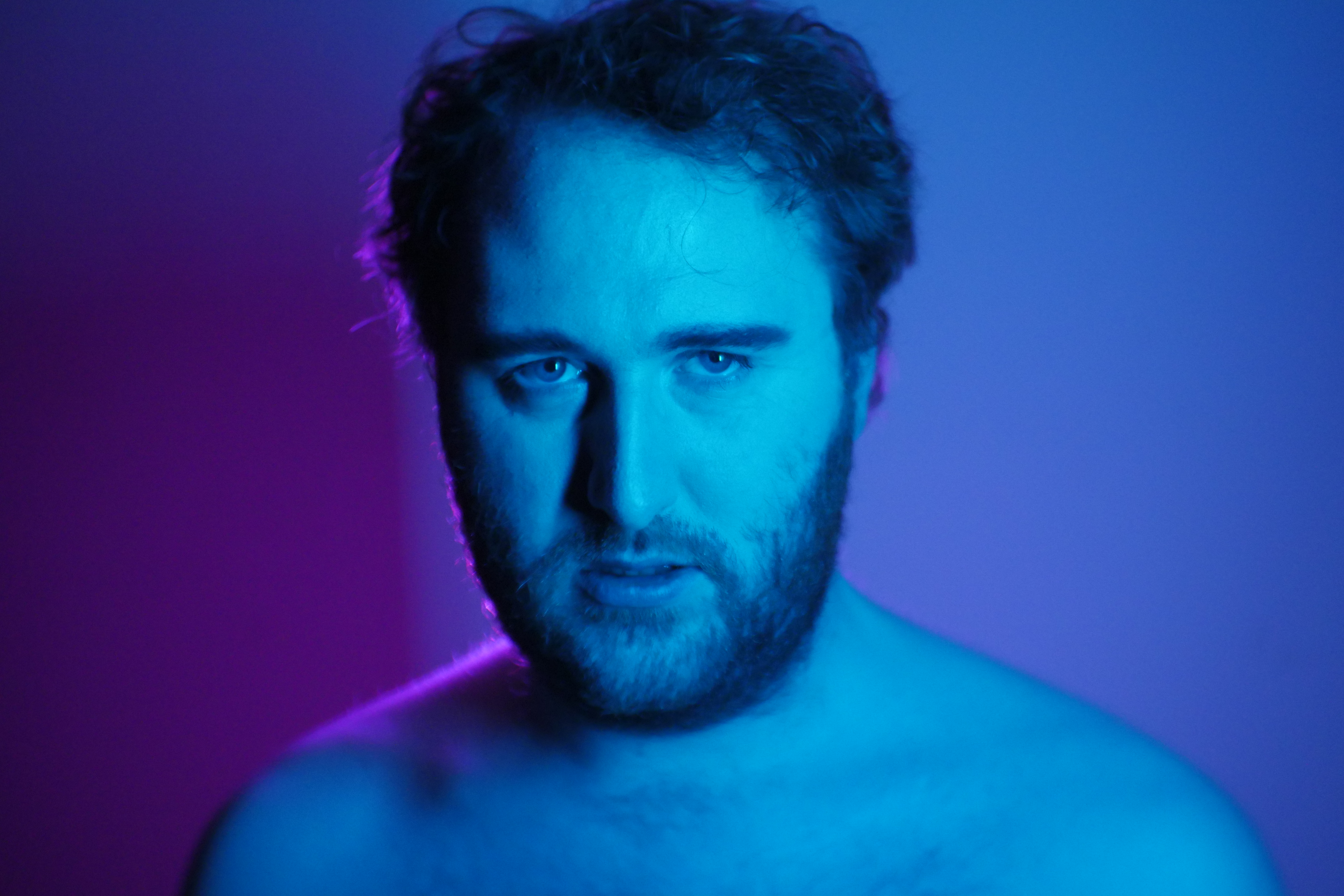The Rise of the Highly Unlikely Twitch Streamer
November 19, 2020“If I’d known at the start of this year that I’d be paying a queer artist in Germany to draw a horse wearing clothes for Twitch, I’d have been like: what the fuck is going on?” says British musician Shura. The horse in question has become a regular character in Shura’s lockdown life, a shared joke that grew from a story told to fans on Twitch, where she now streams three times a week.
The streaming platform, which emerged in 2011, is still mostly known as a place for gamers. But during lockdown, creatives from music, comedy, TV and so-called “variety streamers” have taken to Twitch to share their talents and engage with fans.
Back in spring, Shura was in New York when festival performances and tour shows for her latest record forevher were abruptly cancelled. Other musicians began regular Instagram Live gigs – many unpaid. Shura did a few, but: “It was not satisfying – you’re literally performing to a wall.”
Instead, she played videogames to relax. “I knew what Twitch was, but never understood why you would want to watch anyone on Twitch,” she says.
But while researching The Last of Us Part II, Shura browsed Twitch. She came across American gamer ChellOAG and loved her stream: “I was like, maybe I should do this? There were a lot of videogame references in my first record, so by chance I set myself up really well to become a gaming musician on Twitch!”
Her followers and subscribers are, she estimates, 95 percent prior fans of her music. Twitch has offered Shura a surprising way to forge a closer bond with them: “It was like making this giant sofa on the internet where you can hang out and still have some connection with your fanbase.”
While the music industry has focused on mailing lists to reach fans, Shura feels she’s found a more effective route through Twitch and the associated Discord server many streamers use as a place for followers to chat: “It’s been weird to realise there are these other tools that musicians have previously neglected.” She’s also determined to create a welcoming environment for fans in the gaming world, which still has pockets of misogyny, racism and homophobia: “It’s important to make this safe space where people who are queer can go and not have shit thrown at them.”
Shura has done some music streams – on the one-year anniversary of foreveher’s release, she played demos, did a Q&A and piano performance. Yet even while gaming, she’s found streaming replicates the on-stage experience: “You get that same adrenaline rush. You’re performing – if you want people to enjoy themselves, you have to find ways of engaging beyond the game.”

Comedians also saw their schedules wiped during lockdown. Scottish comedian Limmy has streamed for years, but announced his retirement from TV to focus on Twitch. Others joined him there – Josie Long and Richard Herring, while Bilal Zafar has thousands watching him in character as a PES football manager.
Sean Morley, standup and co-host of Mandatory Redistribution Party podcast, also moved comedy onto Twitch during lockdown. At first: “I had friends do guest parts, I’d write loose plots – like a comedy play.”
But after committing to twice-weekly streaming, he realised Twitch demanded a different approach. He introduced more audience interaction to two solo streams, Meme Machine and King Morl, and recently started an interactive game, Escape the North, with comics in Manchester.
“The premise of Meme Machine is: I’m making an image for Twitter, I want to go viral, but I have no ideas,” Morley explains. “So I ask people to donate ideas, then we make memes based on that.”
Fans have immersed themselves in unexpected ways. Morley plays Creative Commons-licensed music during streams – fans made their own albums containing shared jokes and posted them on Creative Commons for Morley to find. The Meme Machine community also received a commission from composer Ben Gaunt for a video to be played at a Nottingham University symposium. “It’s one of the weirdest things I’ve ever seen, let alone made,” says Morley.
King Morl is a little different. It uses an existing game, Crusader Kings II, but the audience can modify the world. “We let the chat choose a long-form objective. They learned early on that there were non-human characters in the game. They all said: make the pope a bear.”
Months-long storylines developed. Morley uploaded past streams to YouTube so anyone could catch up: “Even when there was 30 hours to get through, people started doing it.”
King Morl recently had its cinematic finale where a bear was finally crowned pope. “People were quite emotional – they said it helped them through a really horrible year. It was sweet. You can’t get close to that vibe with an hour-long [stand-up] show.”

It’s this collaborative, community aspect that Scottish TV presenter Claire Lim loves most about streaming. Lim, known as Wee Claire on Twitch, has presented for the BBC and NME and joined Twitch in 2018. She started streaming videogames, but soon tried new formats, chatting and playing interactive games – guessing someone’s age based on their teenage crush or drawing followers’ portraits.
When she got a PC, she decided to make slicker TV-style formats: “It’s a big learning curve in terms of production, but I started to go: what can I do that’s always been a dream in my little nerdy head?”
Lim now hosts various chat shows, including the Top 10 List of All Lists and How I Met Your Streamer. There’s also the Wee Marbles Federation (“by far the most popular show”), a WWE-influenced programme that layers soap opera-style storylines onto a game called Marbles.
The pandemic encouraged Lim to learn new skills – she’s improved her editing and branched into music-making, creating a Christmas EP with input from her community, the Wee Squad. “People come to watch me, but it takes on a life of itself,” Lim says. “It’s 50 percent community, 50 percent streamer. The Wee Squad have helped me through the pandemic – economically in terms of subbing [subscribing], but also in terms of belief. The power of community is incredible.”
Like Shura, Lim also works hard to create a welcoming space for fans: “I have friends from the LGBTQ+ community, different backgrounds, ethnically and otherwise, so for me it’s important that my stream reflects my values.” Moderators (Lim highlights her “dad mod” DW who’s been with her since the start) uphold these values.
While streaming helps Lim hone presenting skills, it could one day be a career in itself. “I’ve had struggles trying to get agents and producers into what I’m doing on Twitch,” Lim says. “But if you’re looking to be an entertainer, be hugely creative and not just play games… I do think Twitch could be an alternative route. As long as you know that it’s just as hard.”
Morley has also turned Twitch into an income-maker. While streaming twice a week doesn’t equal his normal comedy earnings and there’s a battle with the algorithm to be seen, the in-stream tipping function mirrors “pay what you want”, his favoured comedy payment model. “You try to make people feel they are wilfully contributing to something they want to succeed,” Morley says. “Twitch has that from the start.”
Unlike Spotify and Apple Music, “the culture around Twitch is to support creators,” Shura says. “I’m also making significantly more from my merch than if I wasn’t on Twitch. It does help support all the other avenues at a time when your job basically doesn’t exist.”
All three artists plan to continue streaming when their industries return to normal. There’s also shared hope that Twitch will continue to diversify beyond gaming. Lim’s been watching more music streamers, such as The Village Ruse, while Shura’s given Ladyhawke tips on setting up her own channel.
Lim says: “There are so many amazing people on Twitch that are way funnier, more creative, dynamic and interesting than people I see on television. Twitch is a more diverse place if you go and find it. It’s not perfect, but the more people that come to it, the better it will be.”
